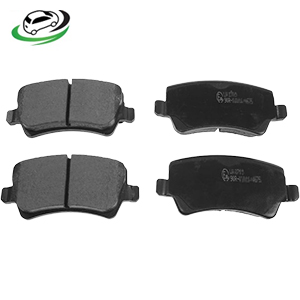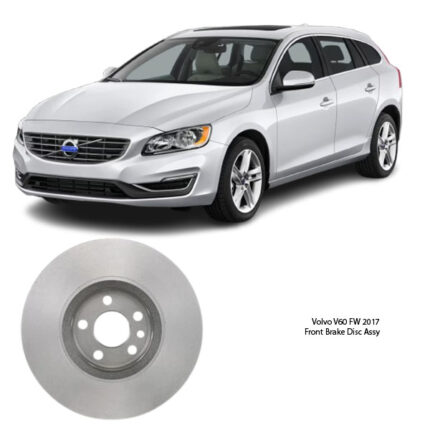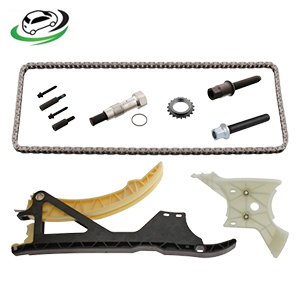-7%
Get Timing Chain Kit For BMW X1 E84 N20 B20 A N20 B16 A 5 F10 X3 F25 48385
Timing chains and timing belts are crucial components of a vehicle’s engine, responsible for synchronizing the rotation of the crankshaft and camshaft to ensure proper engine operation. Understanding the benefits of timing chains or belts and recognizing the signs indicating the need for replacement are essential for maintaining engine performance, reliability, and longevity.
Benefits of Timing Chains or Belts:
- Precise Engine Timing: Timing chains or belts ensure precise synchronization of the crankshaft and camshaft, allowing the intake and exhaust valves to open and close at the correct time during the engine’s four-stroke cycle. Proper engine timing is critical for optimal combustion, power delivery, and fuel efficiency.
- Quiet Operation: Timing chains or belts operate silently and efficiently, contributing to a quiet and smooth engine operation. Unlike older timing systems that used gears, chains or belts produce minimal noise and vibration, enhancing overall driving comfort.
- Low Maintenance: Timing chains or belts are designed to last for the life of the engine under normal operating conditions. Unlike timing belts, which require periodic replacement according to the manufacturer’s recommended intervals, timing chains typically do not need routine maintenance or replacement unless they become worn or damaged.
- Durability: Timing chains are typically constructed of metal alloy links or rollers, making them highly durable and resistant to wear. Timing belts, although made of reinforced rubber, are also designed to withstand the rigors of engine operation under normal conditions. Proper maintenance and care can ensure the longevity of both timing chain and belt systems.
- Consistent Performance: By maintaining precise engine timing, timing chains or belts contribute to consistent engine performance across various driving conditions. Whether idling, accelerating, or cruising, a properly functioning timing system ensures smooth and responsive engine operation.
- Engine Protection: Properly timed valve operation prevents interference between the valves and pistons, reducing the risk of catastrophic engine damage. In interference engines, where the valves and pistons occupy the same space at different times, a failed timing chain or belt can result in costly engine repairs or replacement.
- Fuel Efficiency: Optimal engine timing facilitated by timing chains or belts helps maximize fuel efficiency by ensuring efficient combustion of the air-fuel mixture. By precisely controlling valve timing, the engine can operate more efficiently, consuming less fuel and reducing emissions.
Signs a Car Needs Timing Chain or Belt Replacement:
- Engine Misfires: A misfiring engine, characterized by rough idling, hesitation, or loss of power, may indicate timing chain or belt wear or stretching. Improper engine timing can disrupt combustion, leading to decreased performance and efficiency.
- Engine Knocking or Pinging: Timing chain or belt issues can cause engine knocking or pinging noises, especially under acceleration or load. These noises may indicate improper valve timing, potentially resulting in engine damage if left unaddressed.
- Difficulty Starting: A worn or damaged timing chain or belt can affect engine starting, causing extended cranking or difficulty starting the engine, particularly when cold. Improper valve timing can lead to incomplete combustion and poor engine performance.
- Check Engine Light: A illuminated check engine light on the dashboard may indicate timing-related issues detected by the engine control unit (ECU). Common codes associated with timing chain or belt problems include camshaft position sensor (CMP) or crankshaft position sensor (CKP) errors.
- Excessive Engine Vibration: Excessive engine vibration, especially at idle or low speeds, may indicate timing chain or belt wear or tensioner issues. A loose or worn timing chain or belt can cause irregular engine operation and vibration throughout the vehicle.
- Oil Leaks: Timing chain or belt cover gasket leaks may indicate oil contamination of the timing components, potentially causing premature wear or damage. Proper sealing of the timing chain or belt cover is essential to prevent oil leaks and maintain lubrication.
- Visible Wear or Damage: Visual inspection of the timing chain or belt, tensioners, guides, and sprockets can reveal signs of wear, damage, or misalignment. Any visible signs of cracking, fraying, stretching, or missing teeth indicate the need for immediate replacement.
Follow us on Facebook For more parts.



